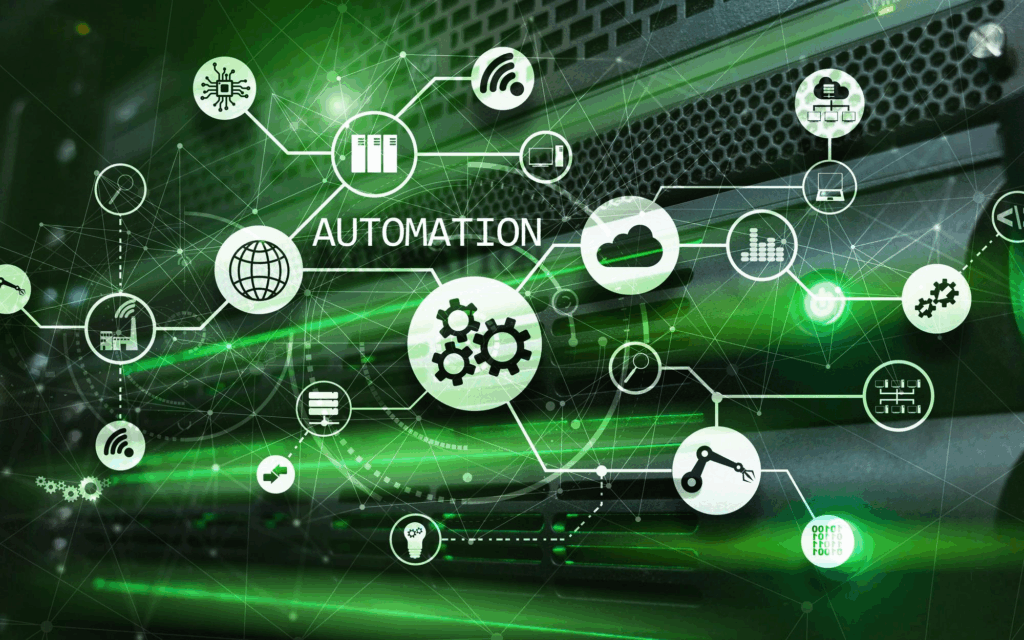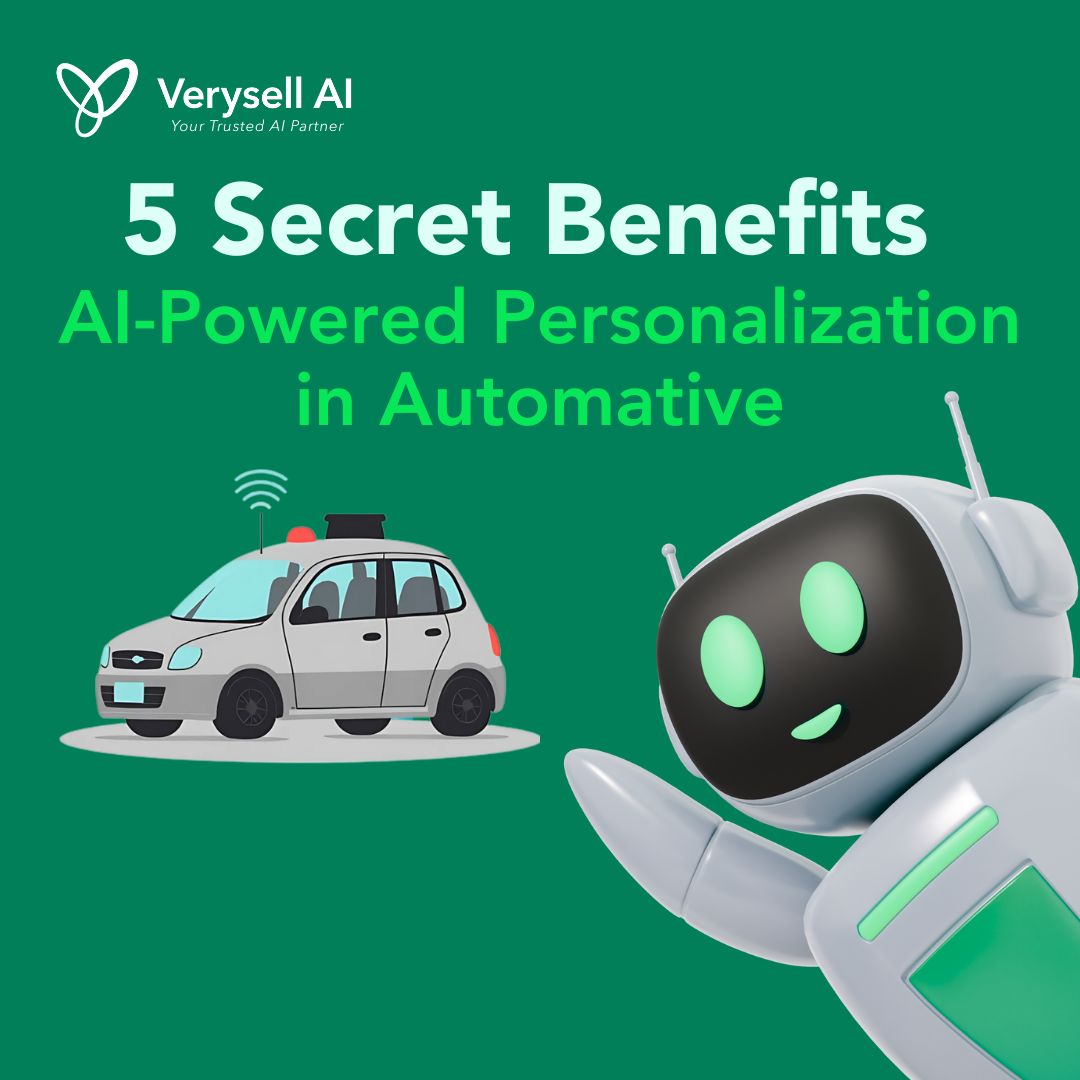AI-powered personalization is revolutionizing the automotive industry by transforming how brands interact with their customers. By leveraging data-driven insights, manufacturers can enhance customer experience and tailor their offerings to meet individual preferences. Predictive analytics play a crucial role in forecasting consumer behavior, allowing companies to optimize their marketing strategies. As a result, personalized marketing becomes not just effective but essential in a competitive marketplace. In this article, we will explore five secret benefits of AI-powered personalization that are driving innovation and growth in the automotive sector.

>> Click here to explore how AI-driven personalization wins in the manufacturing supply chain industry!
1. Why Personalization Is Essential for Car Brands Today’s Consumers?
Today’s consumers purchase experiences rather than simply automobiles. They anticipate that automakers will comprehend their requirements, respond to their inquiries, and promptly lead them to the best choices.
Consider a typical query such as “Which features are right for my driving habits.” or “How can I set up this car to be the best version?” In addition to saving time for both customers and sales teams, AI-powered customization technologies may offer data-driven, real-time responses to these queries, enhancing customer satisfaction and confidence.
2. AI-Powered Personalization Use Cases
2.1 Enhanced Customer Experience
One of the most significant advantages of AI-powered personalization in the automotive industry is the enhancement of customer experience (SmartDev, 2025). When customers interact with automotive brands, they expect tailored experiences that meet their unique needs. AI algorithms analyze vast amounts of data, identifying patterns in customer behavior, preferences, and feedback. This analysis allows manufacturers to customize features, recommend vehicles, and even personalize communication.

For example, a potential buyer browsing SUVs online might receive personalized suggestions for models based on their browsing history, demographic information, and even previous interactions with the brand. For instance, Tesla utilizes customer data to enhance the user interface in its vehicles. The AI adapts the driving settings based on individual preferences, learning what each driver likes, which creates a more enjoyable driving experience. When customers feel that a brand understands and caters to their needs, their overall satisfaction and loyalty increase significantly.
2.2 Increased Sales and Conversion Rates
AI-powered personalization not only improves customer experience but also drives sales and boosts conversion rates (Ramya et al., 2025). With tailored recommendations and targeted marketing, automotive companies can guide potential buyers through the sales funnel more efficiently.
Predictive analytics allows brands to anticipate what products will appeal to certain customer segments. By analyzing historical data, AI identifies which features or models are popular among specific demographics. This supports businesses to personalized information led to a significant increase in test drive bookings, transforming potential interest into actual sales.
2.3 Efficient Inventory Management
Another secret benefit of AI-powered personalization is its impact on inventory management. Traditionally, manufacturers face challenges in predicting demand for various vehicle models. Poor inventory management can lead to overstocking, while understocking can result in lost sales.
For example, companies like BMW utilize AI to predict which models will be in demand based on regional preferences and seasonal trends. By tailoring production to meet actual customer demand, they reduce costs significantly and minimize waste. This lean approach not only improves profitability but also contributes to sustainable practices, aligning with the growing consumer expectation for environmentally responsible brands.
2.4 Personalized Marketing Strategies
Gone are the days of one-size-fits-all marketing campaigns. AI-powered personalization enables automotive brands to develop highly targeted marketing strategies that resonate with specific audiences. Using AI, brands can analyze customer data to determine their preferences, behaviors, and interests. This information can then be used to create personalized content, including emails, social media ads, and website experiences.
Audi employs AI to personalize advertisements based on geographic and demographic data. A family-oriented customer might see ads promoting spacious SUVs, while a young professional might engage more with sporty coupes. This targeted approach ensures higher engagement rates and maximizes the return on investment (ROI) for marketing efforts. Leading automotive firms that have adopted AI-powered personalization report substantial increases in engagement and conversion rates. For example, a targeted Instagram campaign that leveraged personalized video ads led to a significant uptick in inquiries and test drives for a new model launch.
2.5 Strengthened Customer Relationships
Building strong relationships with customers is crucial for long-term success, and AI-powered personalization plays a vital role in achieving this goal. By understanding customer needs and engaging with them meaningfully, automotive brands can foster loyalty. AI systems learn from customer interactions, allowing them to refine their understanding of individual preferences continually. This ongoing engagement helps brands stay relevant and connected with their audience.
From that, implementing personalized loyalty programs based on AI insights is a powerful strategy. Companies like Hyundai have developed programs that reward customers with tailored incentives based on their purchasing behavior and preferences.
3.
4. How to Use AI to Personalize Automative
Leveraging AI doesn’t need a complete rewrite of your systems. Software-based AI-driven customization options are simple to incorporate into current digital platforms. Here’s how to get started from start small things like include conversational AI in your online configurator or website. Then, putting an emphasis on personalization by using AI to customize suggestions and content for various client segments. Finally, to assist you choose the best architecture, integration plan, and AI feature set for your digital ecosystem, collaborate with reputable AI development partners like Verysell AI.
5. Your Future Development for AI in Automative Industry
For brands and dealers hoping to improve user experience, boost engagement, and boost sales, AI-powered customization is more than simply a tool. AI makes every connection seem valued and personal, whether it’s through mobile applications, product configurators, or customized content. Verysell AI, your AI trusted partner, provides AI-driven solutions so, if you’re thinking how to use AI for your automotive business or rise customer happiness, the answer is simple: collaborate with professionals who know how to provide effective AI.


